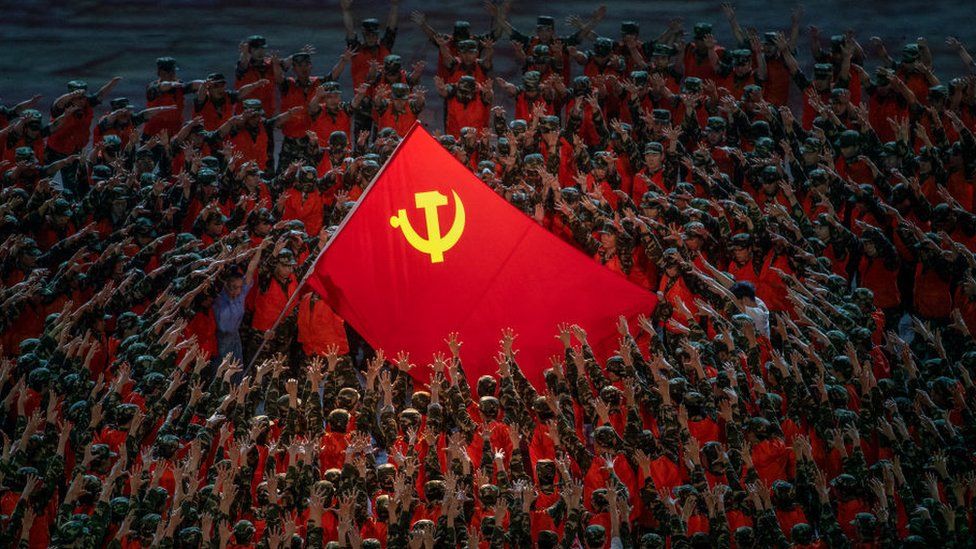China says crackdown on business to go on for years
- Published

The Chinese government has unveiled a five-year plan outlining tighter regulation of much of its economy.
It says new rules will be introduced covering areas including national security, technology and monopolies in the world's second largest economy.
The plan comes soon after Beijing started targeting the technology and education industries.
The document references Chairman Mao as China celebrates the 100th anniversary of the nation's Communist Party.
The 10-point plan, which runs to the end of 2025, was released jointly late on Wednesday by China's State Council and the Communist Party's Central Committee.
It said laws will be strengthened for "important fields" such as science and technological innovation, culture and education.
The plan also said the Chinese government aims to tackle monopolies and "foreign-related rule of law".
Regulations relating to China's digital economy, including "internet finance, artificial intelligence, big data, cloud computing etc." will also be reviewed.
The announcement raised fresh concerns that Beijing's crackdown on technology and private education companies is set to continue and expand in years to come.
Shares in many Chinese companies listed in the US, Hong Kong and mainland China have fallen sharply this year as investors' concerns grow over the crackdown.
Beijing has already launched anti-monopoly investigations into some of the country's biggest technology firms and taken action against a wide range of other businesses.
In April, technology giant Alibaba accepted a record $2.8bn (£2bn) fine after an investigation found that it had abused its dominant market position for years.
Last month, Tencent was told to end exclusive music licensing deals with record labels around the world.
Also in July, some of the country's biggest online platforms - Kuaishou, Tencent's messaging tool QQ, Alibaba's Taobao and Weibo - were ordered to remove inappropriate child-related content.
This week, Chinese authorities said they had increased their scrutiny of after-school tuition services offered by individual teachers.
During a recent inspection, one person and six institutions were punished for offering unlicensed after-school tutoring that broke regulations, the Beijing Municipal Education Commission said in a statement Monday.
The move came as tutoring firms had changed how they operated after a government crackdown on the industry.
Last month, Beijing unveiled a massive overhaul of China's $120bn private tutoring sector, under which all institutions offering tuition on school curricula will be registered as non-profit organisations.
The new rules said: "Curriculum subject-tutoring institutions are not allowed to go public for financing; listed companies should not invest in the institutions, and foreign capital is barred from such institutions."
Meanwhile, this week China's banking and insurance watchdog stepped up its regulation of online insurance companies, according to the Caixin news agency.
The China Banking and Insurance Regulatory Commission ordered the firms to stop improper marketing and pricing or face "severe punishment."
You may also be interested in:
How a little Ant became a financial giant
Related Topics
- Published9 August 2021
- Published12 April 2021
- Published21 July 2021